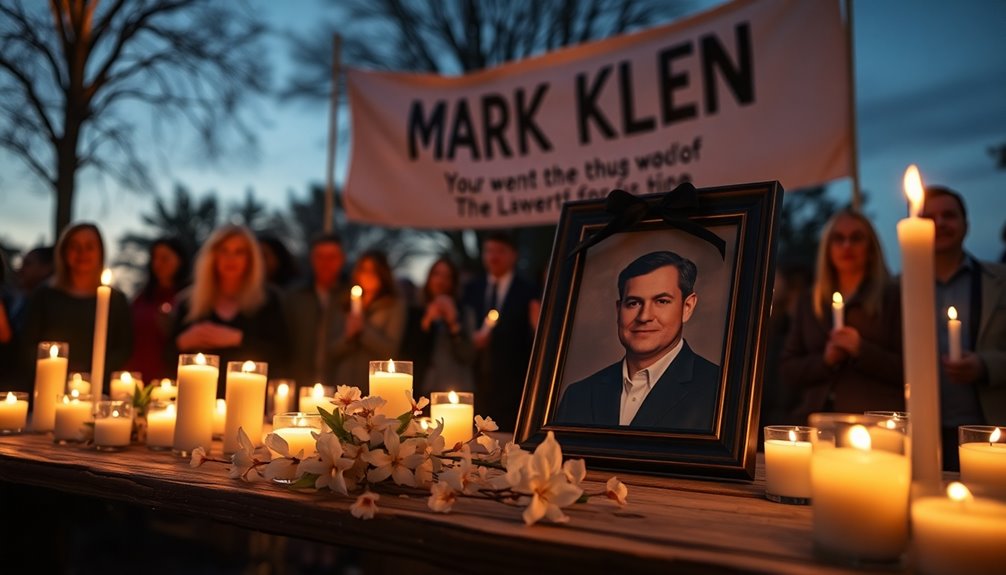
As you reflect on the legacy of Mark Klein, the whistleblower who bravely exposed the depths of government surveillance, you can't help but recognize the profound impact he'd on privacy rights. Klein's journey began as a telecommunications technician at AT&T, where he spent 22 years, primarily in San Francisco. His role involved connecting circuits and managing network infrastructure, giving him invaluable insight into the company's internal operations and its potential collaborations with government entities.
In 2004, after retiring from AT&T, Klein stumbled upon something alarming: Room 641A, a secret NSA facility within AT&T's San Francisco location. This room was designed to copy all data passing through AT&T's networks, allowing for mass surveillance without any warrants or oversight. Klein's discovery sparked a deep concern about the implications of such unconstitutional surveillance, prompting him to take action.
When *The New York Times* revealed the NSA's surveillance practices in 2005, Klein didn't hesitate. He came forward with over 100 pages of authenticated AT&T documents, which he shared with the Electronic Frontier Foundation (EFF). These documents detailed how the NSA accessed AT&T's fiber-optic cables, shedding light on a vast network of surveillance that most people were unaware of. His revelations ignited significant media attention and raised public awareness about privacy issues, despite the potential legal repercussions he faced.
Klein's evidence played a crucial role in lawsuits against AT&T and the NSA, such as *Hepting v. AT&T* and *Jewel v. NSA*. His testimony even influenced Congressional discussions surrounding surveillance practices. However, despite his relentless efforts, comprehensive reforms didn't materialize during his lifetime. Still, his actions contributed to ongoing debates about surveillance laws and inspired many to advocate for privacy rights. Additionally, his disclosures highlighted the extent of mass surveillance practices by the NSA, which had far-reaching implications for civil liberties.
His revelations sparked widespread public concern, leading him to collaborate with media outlets and advocacy groups to amplify the message. Klein's book, *Wiring Up the Big Brother Machine…And Fighting It*, detailed his experiences and further fueled the fight against mass surveillance. His legacy lives on, inspiring numerous privacy advocates and reforms while influencing discussions about surveillance.
As Section 702 approaches its expiration in 2026, the relevance of Klein's work remains clear. Advocacy groups like EFF continue to champion reforms based on his revelations. Klein's courage in the face of potential legal consequences is a model for future whistleblowers, reminding us all of the ongoing struggle for privacy rights in an increasingly surveilled world.

Magicmoon 15.6" Privacy Filter Screen Protector, Anti-Spy/Glare Film for 15.6 inch Widescreen Notebook Laptop with 16:9 Aspect Ratio (Width x Height:344mmx194mm)
- Compatible Model: Fits 15.6 inch widescreen laptops
- Privacy Protection: Blocks side-viewing for privacy
- Blue Light Filter: Reduces blue light by 30%
As an affiliate, we earn on qualifying purchases.
As an affiliate, we earn on qualifying purchases.

Mullvad VPN | 12 Months for 5 Devices | Protect Your Privacy with Easy-To-Use Security VPN Service
- 12-Month VPN Subscription: Use on 5 devices without renewal
- Enhanced Privacy Protection: No activity logs or personal data
- Device Compatibility: Supports Windows, Mac, Linux, iOS, Android
As an affiliate, we earn on qualifying purchases.
As an affiliate, we earn on qualifying purchases.

Kingston Ironkey Locker+ 50 32GB Encrypted USB Flash Drive | USB 3.2 Gen 1 | XTS-AES Protection | Multi-Password Security Options | Automatic Cloud Backup | Metal Casing | IKLP50/32GB,Silver
- Encryption Technology: XTS-AES with attack protection
- Security Options: Multi-password admin and user
- Cloud Backup: Automatic personal cloud backup
As an affiliate, we earn on qualifying purchases.
As an affiliate, we earn on qualifying purchases.

TP-Link AX1800 WiFi 6 Router (Archer AX21) – Dual Band Wireless Internet, Gigabit, Easy Mesh, Works with Alexa – A Certified for Humans Device, Free Expert Support
- VPN Server Support: Supports Open VPN and PPTP VPN servers
- Dual-Band WiFi 6: Faster speeds and reduced congestion
- AX1800 Speed: Up to 1.8 Gbps total bandwidth
As an affiliate, we earn on qualifying purchases.
As an affiliate, we earn on qualifying purchases.









